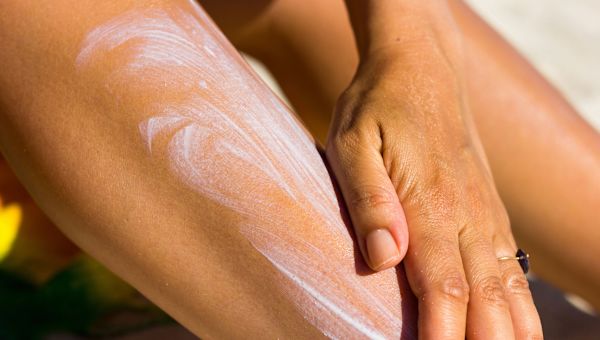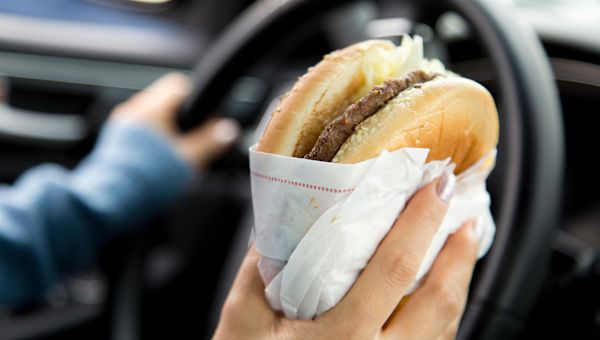7 surprising health mistakes you might be making
These seemingly harmless habits could be getting in the way of your health goals.
Updated on January 30, 2026

You work hard to stay fit, eat right and avoid risky behaviors. But you could be sabotaging your hard work without realizing it. Even the healthiest people can make surprising mistakes. Here are seven traps you might be falling into and simple ways to avoid them.

You inhale cooking fumes
You may be exposing yourself to a shocking source of second-hand smoke. Experts believe frying fats releases harmful chemicals linked to lung cancer into the air. Fried meats, especially, produce heterocyclic amines, which are cancer-causing compounds that can also be found in cigarette smoke. To avoid exposure, grill meats outdoors. Indoors, cook in a well-ventilated area with an extractor fan running if possible—especially if you have a gas stove.

You avoid carbs
Skipping carbs entirely may not be as healthy as some trendy diet would suggest. In fact, eliminating them can deprive you of whole grains, legumes, fruits and vegetables—all important parts of a healthy, well-rounded diet.
But not all carbohydrates are the same. Some are healthier than others. Refined carbs, like white bread and white rice, are more processed than healthier whole grains, which retain more fiber and other nutrients. Since they have more fiber, whole grains help you feel full for longer, which is why they are often the better choice for those who are trying to lose excess weight.
If you are eating refined grains, try to limit your portion and include other foods, like vegetables and lean protein. “Treat the pasta more as an ingredient in the total dish, and not as the center of the plate,” Largeman-Roth explains.
Some healthy whole grains to try: quinoa, farro, brown rice or bulgur with your next meal.

You eat well, but leave out entire food groups
Just because you consistently choose healthy foods doesn’t mean you’re getting the full range of nutrients you need. So, keep a journal for a week to take stock of your habits. You may realize you’re neglecting entire food groups, such as non- or low-fat dairy consuming more sugar than you realize.
Your notes may reveal surprising trends in your routine and help you kick-start better habits.

You touch the menu—and then your food
You can wash your hands before sitting down to a restaurant meal, but still wind up seasoning your entrée with germs if you then handle the menu. Both electronic and paper menus often harbor harmful bacteria or other germ because:
- Even though they're touched often, restaurants may rarely clean them.
- Most people don’t wash their hands properly after using the restroom.
Salt and pepper shakers are also frequently used, but rarely washed. The next time you eat out, wash your hands after ordering and use a napkin to grab the condiments.

You overlook allergy hot zones when cleaning
You might keep a tidy home, but allergens like mold, pollen and dust mites can settle into some surprising places. Did you know your air conditioner (AC) filter should be cleaned or replaced every one to three months? The small-particle filters in both central AC systems and wall units, which capture household allergens, can clog easily, causing particles to flourish and spread.
To kill dust mites, duvets and stuffed animals should be washed on a hot cycle or frozen for 24 hours and then washed each month.
The inside of your trash can and the back of your shower curtain can be mold hideaways, too. Regularly disinfect them with diluted bleach. Aim to clean your trash can weekly and your shower curtain monthly.

You only apply sunscreen once
Sun damage can happen after just 15 minutes, yet the majority of Americans don’t wear the proper amount of sunscreen. Applying it once at the start of your day isn’t enough. For optimal protection, reapply at least every two hours—more frequently when swimming or sweating. Remember to lather up on overcast days, too, when 80 percent of the sun’s rays can still reach you.
The best approach is a combination of sun-safety strategies. Try using a full-spectrum SPF sunscreen, seeking shade and wearing a hat and cover-up. Why? Sunscreen doesn’t protect against 100 percent of the sun’s rays. You can still get burned in the shade, since sun bounces off reflective surfaces like sand, water and snow.

You're always eating on the go
Consistently eat meals very quickly to save time, can have consequences. When you eat too quickly, food can fill your stomach before your brain has a chance to realize that you’re full. Give your mind a chance to catch up by timing your meals so they last at least 20 minutes and chewing your food well. Add fiber-rich foods like fresh vegetables, which slow down your chewing and encourage healthy digestion.
If you do have to eat on the go, take time to prep some healthy options at home. For a handheld meal, try a whole grain wrap filled with lean chicken, tons of veggies and mustard. Make your own trail mix by combining unsalted nuts, dried cranberries and a little bit of dark chocolate. Carrot and celery sticks with mini packs of hummus are good choices, too.

W Jedrychowski, FP Perera, et al. “Impact of barbecued meat consumed in pregnancy on birth outcomes accounting for personal prenatal exposure to airborne polycyclic aromatic hydrocarbons: Birth cohort study in Poland.” Nutrition. April 2012. 28(4), 372–377.
Greger, M. “How not to die: Discover the foods scientifically proven to prevent and reverse disease.” New York, NY: FlatIron Books. 2015.
Time Labs. “Here’s How Americans Are Failing to Meet Dietary Guidelines.” January 14, 2016. Accessed November 12, 2020.
JF Hollis, CM Guillion, et al. “Weight Loss During the Intensive Intervention Phase of the Weight-Loss Maintenance Trial.” American Journal of Preventive Medicine. 2008. Volume 35, Number 2.
SA Sirsat, JK Choi JK, et al. “Persistence of Salmonella and E. coli on the surface of restaurant menus.” Journal of Environmental Health. 2013 Mar;75(7):8-14; quiz 54.
American Academy of Allergy, Asthma & Immunology. “Cleaning Tips for Allergy and Asthma Sufferers.” September 28, 2020. Accessed November 12, 2020.
Energy.gov. “Maintaining Your Air Conditioner.” 2020. Accessed November 12, 2020.
World Health Organization. “Prevention of Allergy and Allergic Asthma.” January 2002. Accessed November 12, 2020.
American Cleaning Institute. “Cleaning to Control Allergies & Asthma.” 2010. Accessed November 12, 2020.
Centers for Disease Control and Prevention. “Protect Your Family From Skin Cancer.” 2020. Accessed November 12, 2020.
Centers for Disease Control and Prevention. “How Can I Protect My Children from the Sun?” April 9, 2020. Accessed November 12, 2020.
EPA.gov. “The Burning Facts.” September 2006. Accessed November 12, 2020.
American Academy of Dermatology Association. “Sunscreen FAQs.” 2020. Accessed November 12, 2020.
American Academy of Dermatology Association. “Prevent Skin Cancer.” 2020. Accessed November 12, 2020.
British Nutrition Foundation. “Understanding satiety: feeling full after a meal.” 2020. Accessed November 12, 2020.
T Ohkuma, Y Hirakawa, et al. “Association between eating rate and obesity: a systematic review and meta-analysis.” International Journal of Obesity. 2015 Nov;39(11):1589-96.
E Robinson, E Almiron-Roig, et al. “A systematic review and meta-analysis examining the effect of eating rate on energy intake and hunger.” American Journal of Clinical Nutrition. 2014 Jul;100(1):123-51.
PL Jia, C Zhang, et al. “The risk of lung cancer among cooking adults: a meta-analysis of 23 observational studies.” Journal of Cancer Research and Clinical Oncology. 2018 Feb;144(2):229-240.
CR Feichtner, LG Arlian, et al. “Home freezers kill house dust mites.” Journal of Allergy and Clinical Immunology. January 1, 2018. Volume 141, Issue 1, p451-454.
Rocky Mountain Institute. “Gas Stoves: Health and Air Quality Impacts and Solutions.” 2020. Accessed December 10, 2020.
Harvard TH Chan School of Public Health. “Obesity Prevention Source: Food and Diet.” 2020. Accessed December 10, 2020.
R Estruch, E Ros, et al. “Primary Prevention of Cardiovascular Disease with a Mediterranean Diet Supplemented with Extra-Virgin Olive Oil or Nuts.” New England Journal of Medicine. June 21, 2018; 378:e34.
More On


video

article

slideshow


video


video
